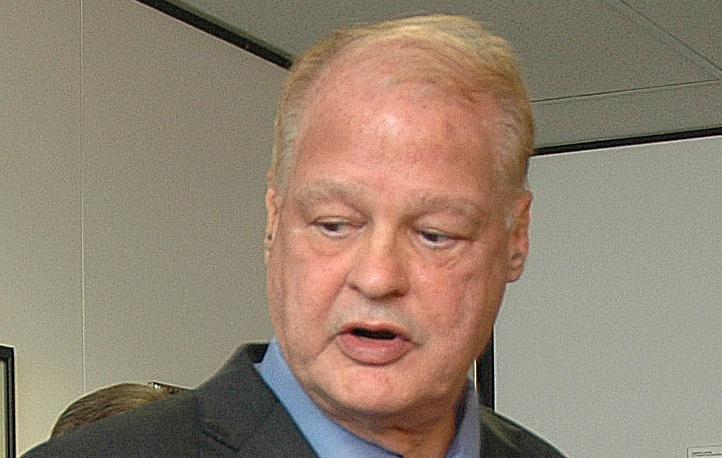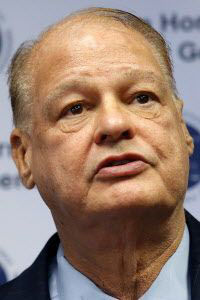PHOENIX — The Arizona Supreme Court agreed Tuesday to let former Attorney General Tom Horne try to void a $1.2 million fine imposed against him for violating campaign-finance laws in his 2010 election.
Horne contends that there was not enough evidence for Yavapai County Attorney Sheila Polk to conclude that there was illegal collusion between him and what was set up as a separate — and independent — committee to promote his election.
Horne said Polk, in concluding he was guilty, ignored findings to the contrary by a state hearing officer.
But the main thrust of his argument is that it was improper, if not illegal, for Polk to effectively have served as investigator, prosecutor and judge in the matter.
His attorney, Dennis Wilenchik, says that violated Horne’s due process rights.
What the high court decides will have implications far beyond Horne.
Polk, sitting in for the attorney general in this case, followed the common practice of state agency directors to both pursue complaints against those who violate regulations and then to become the person who makes the final decision on whether there was a violation. Agency directors even are allowed to overturn the findings of their own hearing officers.
Solicitor General John Lopez IV, in a “friend of the court” brief written before he was named a Supreme Court justice earlier this month, said state agencies and their directors need “guidance” on whether they can continue in both roles.
Polk said Tuesday she had no comment on the matter.
At issue is $513,340 spent by Business Leaders for Arizona on a last-minute commercial attacking Democrat Felecia Rotellini, Horne’s 2010 challenger.
The group was formed by Kathleen Winn, a staffer in Horne’s office, and registered as an independent campaign committee. That status prohibits it from legally coordinating its expenses with the candidate.
The FBI, looking into other matters after the 2010 election, came across what it said was evidence that there was communication.
The case went to then-Secretary of State Ken Bennett who, by law, had to pass it on to the Attorney General’s Office.
But with Horne now running that agency, an aide farmed the case out to Polk.
She found evidence of violations, citing a series of phone calls between Horne and Winn.
When they appealed, the case was sent to an administrative law judge — essentially a hearing officer — with one of Polk’s deputies presenting the evidence against the pair.
Polk acknowledged later that she “was involved with the prosecution of the case, by assisting with the preparation and strategy.”
That judge eventually accepted their testimony that they were not talking about the campaign but instead discussing a pending real estate deal.
Polk, however, rejecting the findings, saying there was evidence that Horne directed Winn to not just raise money for her campaign for his election but also how to spend it.
‘Changed her story’
Polk said Winn “repeatedly changed her story” and that her “pattern of contradicting sworn affidavits to conform to newly revealed facts calls into question her credibility.”
The result was a finding that Winn’s expenses really were contributions to Horne’s campaign, contributions that exceeded the limit by $400,000 of what he could take from any one source. So Polk imposed a penalty equal to three times that.
Both a trial judge and the state Court of Appeals rebuffed the bid by Horne and Winn to overturn those findings.
That, however, still leaves the question of whether Polk, having conducted the investigation and participated in making the case against the pair, acted improperly in overturning the finding she had not sought and decided to impose the $1.2 million penalty.
Lopez, in his legal brief, said there is court precedent for the same agency enforcing a law and then deciding who has violated it.
“But that guidance comes from a patchwork of decisions of the Court of Appeals,” he wrote.
No date has been set for a hearing.
The issues in this case are separate from other investigations surrounding whether Horne illegally used office staff and equipment in his unsuccessful 2014 reelection campaign.
Horne paid a $10,000 penalty imposed by the Citizens Clean Elections Commission.
A criminal probe by the Maricopa County Attorney’s Office was dropped. But a third civil inquiry on whether campaign finance laws were broken remains outstanding.






